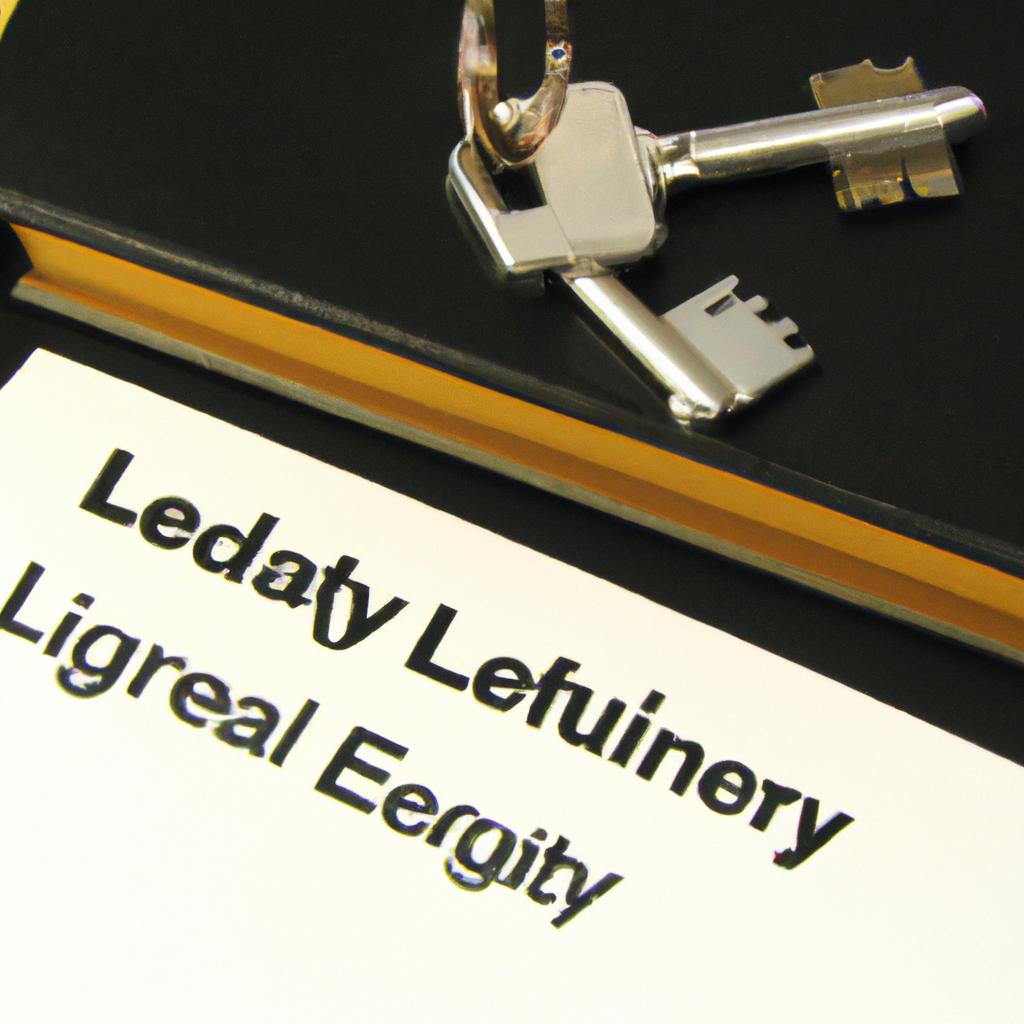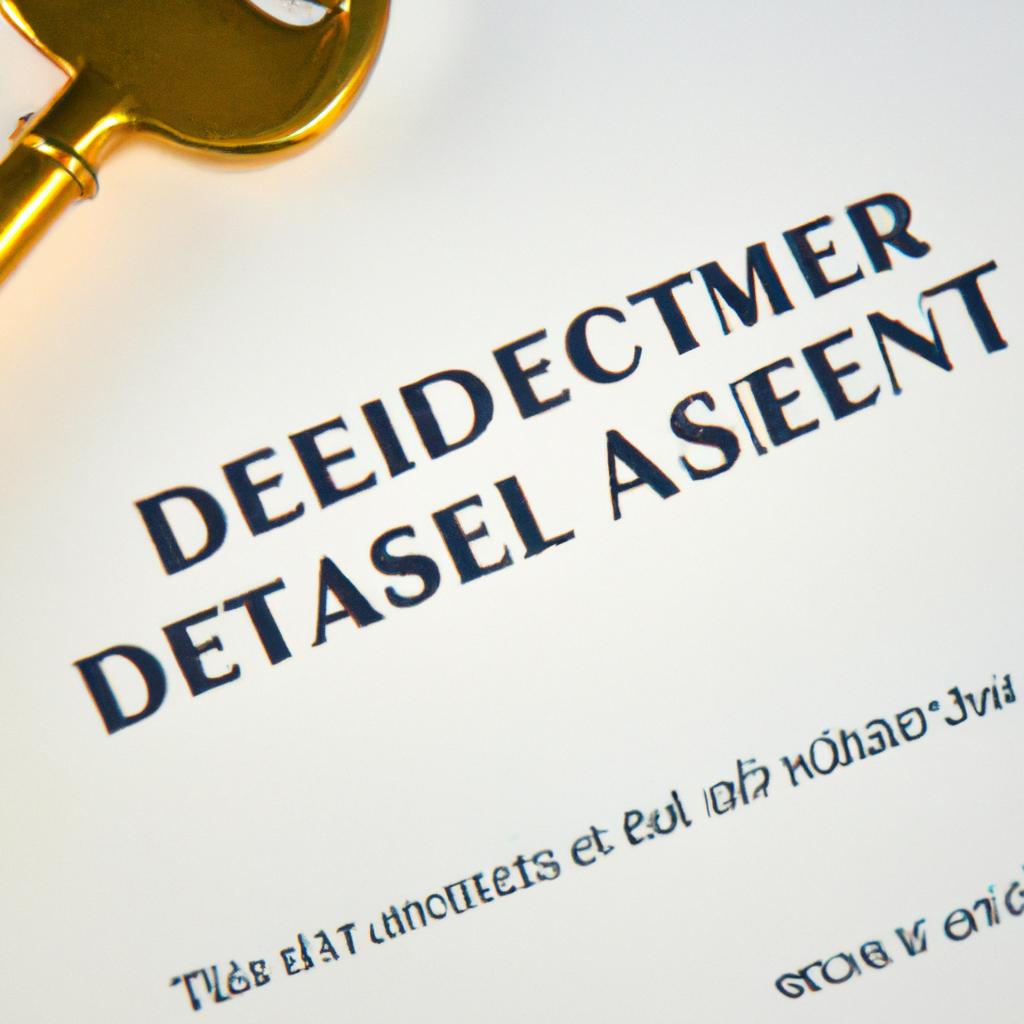As esteemed legal professionals at Morgan Legal Group, situated in the bustling city of New York, we are well-versed in the intricacies of property ownership. One common query we often encounter is, “How do I obtain a deed to my property?” Navigating the realm of real estate law can be complex and overwhelming, but fear not - we are here to guide you through the process with clarity and precision. Join us as we delve into the essential steps involved in securing a deed to your property, ensuring your ownership rights are protected and upheld.
Acquiring Legal Title to Real Estate
When it comes to , one important document that you will need is a deed. The deed is a legal document that transfers ownership of a property from one party to another. Without a deed, you may not have clear legal title to your property. To ensure that you have a valid deed to your property, follow these steps:
- Check with the county recorder’s office to see if the deed has been recorded
- Make sure the deed is properly executed and notarized
- Keep a copy of the deed in a safe place
It is crucial to have a clear and valid deed to your property to avoid any legal disputes in the future. If you are unsure about the deed to your property, it is advisable to consult with a real estate attorney for guidance.

Navigating the Deed Transfer Process
When transferring the deed for your property, it is essential to follow the necessary steps to ensure a smooth and legal process. The first step is to gather all relevant documents, including the current deed, title insurance policy, and any liens or encumbrances on the property. It is important to verify the accuracy of these documents before proceeding with the transfer.
Once you have gathered all the necessary documents, the next step is to prepare a new deed transferring ownership of the property. This deed should include the names of the current owner(s) and the new owner(s), a legal description of the property, and any other relevant information. After the new deed is prepared, it must be signed by the current owner(s) in the presence of a notary public. Finally, the signed deed must be filed with the appropriate government office to officially transfer ownership of the property. requires attention to detail and adherence to legal requirements to ensure a successful transfer of property ownership.
Obtaining Official Documentation of Property Ownership
To obtain official documentation of property ownership, such as a deed to your property, there are a few important steps to follow. Firstly, it is essential to locate the deed to your property, which is typically held by the county clerk’s office where the property is located. The deed will contain important information regarding the legal description of the property, the current owner, and any encumbrances or liens on the property.
Once you have located the deed to your property, you may need to obtain a certified copy for your records. This can typically be done by submitting a request to the county clerk’s office along with the required fee. Additionally, if you are unable to locate the deed or if there are discrepancies in the information, you may need to consult with a real estate attorney for assistance in resolving any issues. Remember, having a clear and accurate deed to your property is essential for establishing legal ownership and protecting your rights as a property owner.
Securing Your Asset with a Properly Executed Deed
When it comes to , it is essential to understand the process of obtaining a deed to your property. A deed is a legal document that transfers ownership of real estate from one party to another. Without a deed, you may not have legal proof of ownership of your property, which can lead to disputes and legal issues in the future. Here are the steps to get a deed to your property:
First, determine the type of deed you need based on your specific situation. Common types of deeds include warranty deeds, quitclaim deeds, and deeds of trust. Next, consult with a real estate lawyer to draft the deed and ensure that it complies with state laws and regulations. Once the deed is drafted, it must be signed by the grantor (current property owner) and delivered to the grantee (new property owner). Finally, the deed must be recorded with the appropriate government office to make the transfer of ownership official and legally binding.
Q&A
Q: How can I get a deed to my property?
A: Getting a deed to your property is a crucial step in officially establishing ownership. Here are some common questions related to this process:
Q: What is a deed?
A: A deed is a legal document that serves as proof of ownership for a piece of property. It includes information about the property, the current owner, and any restrictions or conditions related to the property.
Q: How do I obtain a deed to my property?
A: In order to obtain a deed to your property, you will need to go through the process of transferring ownership. This typically involves filling out paperwork and having it officially recorded with the county or city government.
Q: What information do I need to provide to obtain a deed?
A: You will likely need to provide proof of your identity, as well as any relevant documents related to the property, such as a title report or previous deeds.
Q: Can I get a deed to my property if I still have a mortgage?
A: Yes, you can still obtain a deed to your property even if you have a mortgage. However, the deed will typically include a disclaimer stating that the property is subject to the mortgage.
Q: How long does it take to get a deed to my property?
A: The time it takes to get a deed to your property can vary depending on your location and the specific circumstances of your situation. In general, it can take a few weeks to a few months to complete the process.
Q: Do I need a lawyer to help me get a deed to my property?
A: While it is possible to obtain a deed without a lawyer, it is often recommended to seek legal guidance to ensure that the process is completed correctly and in compliance with all relevant laws and regulations.
To Conclude
In conclusion, obtaining a deed to your property is a crucial step in establishing ownership and securing your investment. By following the necessary legal procedures and working with the appropriate authorities, you can ensure that your property rights are protected. Whether you are purchasing a new property, inheriting one, or simply need to update your deed, understanding the process and seeking the necessary guidance will help you navigate this important aspect of property ownership. Remember, with the right knowledge and assistance, obtaining a deed to your property can be a straightforward and rewarding experience.
 “How Do I Get a Deed to My Property: A Comprehensive Guide”
“How Do I Get a Deed to My Property: A Comprehensive Guide”
Are you a new homeowner or thinking about becoming one? Congratulations! Owning a property is a major accomplishment and a big responsibility. One of the most important documents you will receive when buying a property is the deed. This legal document serves as proof of ownership and outlines the rights and responsibilities associated with the property.
But what exactly is a deed, and how do you get it? In this comprehensive guide, we will answer these questions and provide valuable information on the process of obtaining a deed to your property.
Understanding Deeds
Before we dive into the process of getting a deed, let’s first understand what it is. A deed is a legal document that transfers ownership of a property from one person to another. It contains details such as the name of the property owner, a description of the property, and any restrictions or rights associated with the property.
There are different types of deeds, but the most common ones are warranty deeds, quitclaim deeds, and grant deeds. A warranty deed provides the highest level of protection to the new owner, as it guarantees that the property is free from any legal claims or issues. A quitclaim deed, on the other hand, makes no guarantees about the property’s title and only transfers the interest of the seller to the buyer. Lastly, a grant deed is similar to a warranty deed, but it does not offer as much protection.
Now that we know what a deed is let’s look at the steps to obtaining one for your property.
Step 1: Complete the Purchase Process
The first step in getting a deed to your property is to purchase it. You will need to follow the standard home buying process, including signing a sale contract and securing financing. It is essential to have a thorough understanding of the property you are buying, including any existing liens or encumbrances, to avoid any surprises down the road.
Once all the necessary documents are signed, and the payments are made, you will then move on to the next step.
Step 2: Transfer of Ownership
After the purchase process is complete, the current owner of the property will need to transfer ownership to you. This is usually done through a document called a deed transfer, which legally transfers the property from the seller to the buyer.
The deed transfer must be notarized and recorded with the county recorder’s office where the property is located. This is an essential step as it officially documents the change in ownership and provides a public record of your property ownership.
Step 3: Obtaining the Deed
Once the ownership has been transferred, the new owner can request the deed. The process may vary depending on the state or county laws, but generally, the deed should be available for pick up or will be mailed to you within a few weeks after completing the purchase process.
The deed should be in the form of a physical document, and it is crucial to keep it in a safe place. This document serves as proof of ownership and may be needed for legal purposes in the future.
Step 4: Title Insurance
Title insurance is a crucial step in the home buying process, as it protects both the buyer and the lender from any defects in the title. Title defects can include errors or omissions in the deed, liens, or other encumbrances that may affect ownership of the property.
It is recommended to purchase title insurance to ensure that your investment is protected. The title insurance company will conduct a thorough search of the property’s history, looking for any potential issues, and provide insurance coverage against any title defects.
Benefits of Owning a Deed to Your Property
Having a deed to your property offers many benefits beyond just proving ownership. Here are a few perks of being a property owner:
1. Building Equity: When you own a property, every mortgage payment you make goes towards building equity. This means that you are increasing your ownership stake in the property and can benefit from any appreciation in its value.
2. Stability: Owning a property provides stability, both financially and in terms of having a place to call home. You no longer have to worry about fluctuating rent prices or the possibility of losing your home at the landlord’s discretion.
3. Homeownership Tax Benefits: There are several tax benefits available to homeowners, including deductions for mortgage interest and property taxes. These can help reduce your overall tax liability and increase your financial stability.
Practical Tips for Obtaining a Deed to Your Property
1. Work with a Title Company: A title company can help guide you through the process of obtaining a deed and ensure that all necessary documents are correctly completed and recorded. They can also provide assistance with title insurance if needed.
2. Understand Your State’s Laws: Each state has its own laws and regulations related to the sale and transfer of properties. It is crucial to understand these laws to ensure a smooth and legal transfer of ownership.
3. Keep Important Documents Safe: Make sure to keep your deed, as well as other essential documents such as your mortgage paperwork, in a secure and easily accessible place.
In Conclusion
Obtaining a deed to your property is a crucial step in the home buying process. It provides legal proof of ownership and ensures that your investment is protected. By following the steps outlined in this guide and working with professionals such as title companies, you can successfully obtain a deed to your property and enjoy the benefits of homeownership. Remember to keep all important documents safe and to understand your state’s laws related to property ownership for a smooth and stress-free process. Congratulations on becoming a homeowner!

